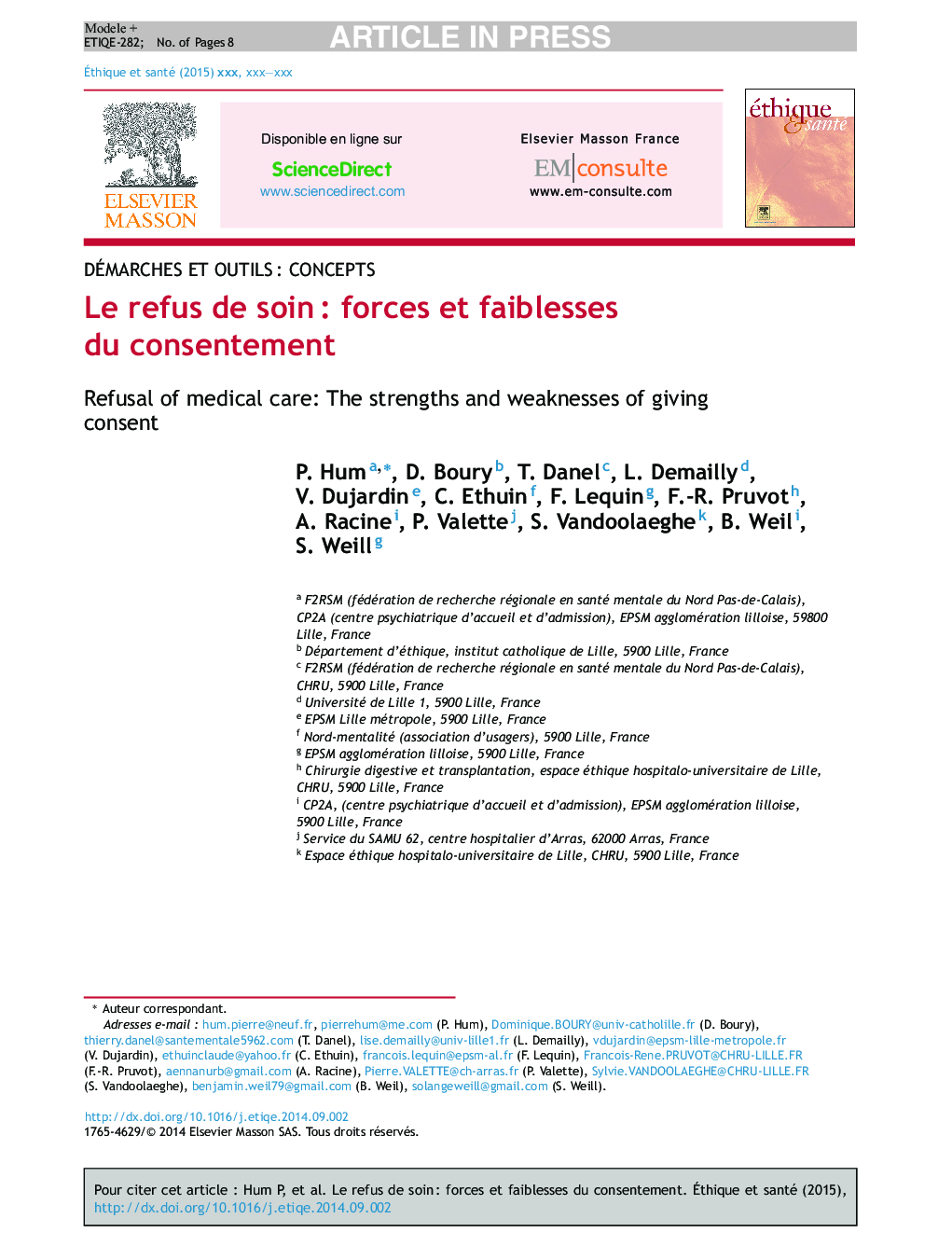| کد مقاله | کد نشریه | سال انتشار | مقاله انگلیسی | نسخه تمام متن |
|---|---|---|---|---|
| 1072006 | 949652 | 2015 | 8 صفحه PDF | دانلود رایگان |
عنوان انگلیسی مقاله ISI
Le refus de soin : forces et faiblesses du consentement
دانلود مقاله + سفارش ترجمه
دانلود مقاله ISI انگلیسی
رایگان برای ایرانیان
کلمات کلیدی
موضوعات مرتبط
علوم پزشکی و سلامت
پزشکی و دندانپزشکی
سیاست های بهداشت و سلامت عمومی
پیش نمایش صفحه اول مقاله

چکیده انگلیسی
The act of giving consent plays a primordial role in the delivery of care as perceived from a clinical, legal or ethical standpoint. Recourse to psychiatric care measures the effects even though psychiatry is not the only discipline concerned. Nevertheless, can it be said that the concept of consent truly achieves its supposed ambitions? The notion of refusing care sheds light on these varying problems. Indeed, refusing care is not simply an obstacle to receiving care: what value can be granted to giving consent if it is not possible to negotiate the issue, or if refusing care is not a viable option? This perspective enables giving the precise immanent characteristics for consent. It also highlights certain misrepresentations concerning consent, together with types of almost formal constraint that are seen in cases of false consent, consent given by force, and disagreements that are not expressed directly or misinterpreted. It is through a critical perspective that the weaknesses and limits to the notion of consent will be considered. It is also the reason why we resort to this at the very moment when refusal of care occurs. Maybe this moment should not be considered as negative, and it does help in formulating a limited and pertinent use of the consent. Consenting to care involves a negotiation period that relies on a basis of relational dynamics, with a view to obtaining acceptance for care.
ناشر
Database: Elsevier - ScienceDirect (ساینس دایرکت)
Journal: Ãthique & Santé - Volume 12, Issue 1, March 2015, Pages 56-63
Journal: Ãthique & Santé - Volume 12, Issue 1, March 2015, Pages 56-63
نویسندگان
P. Hum, D. Boury, T. Danel, L. Demailly, V. Dujardin, C. Ethuin, F. Lequin, F.-R. Pruvot, A. Racine, P. Valette, S. Vandoolaeghe, B. Weil, S. Weill,